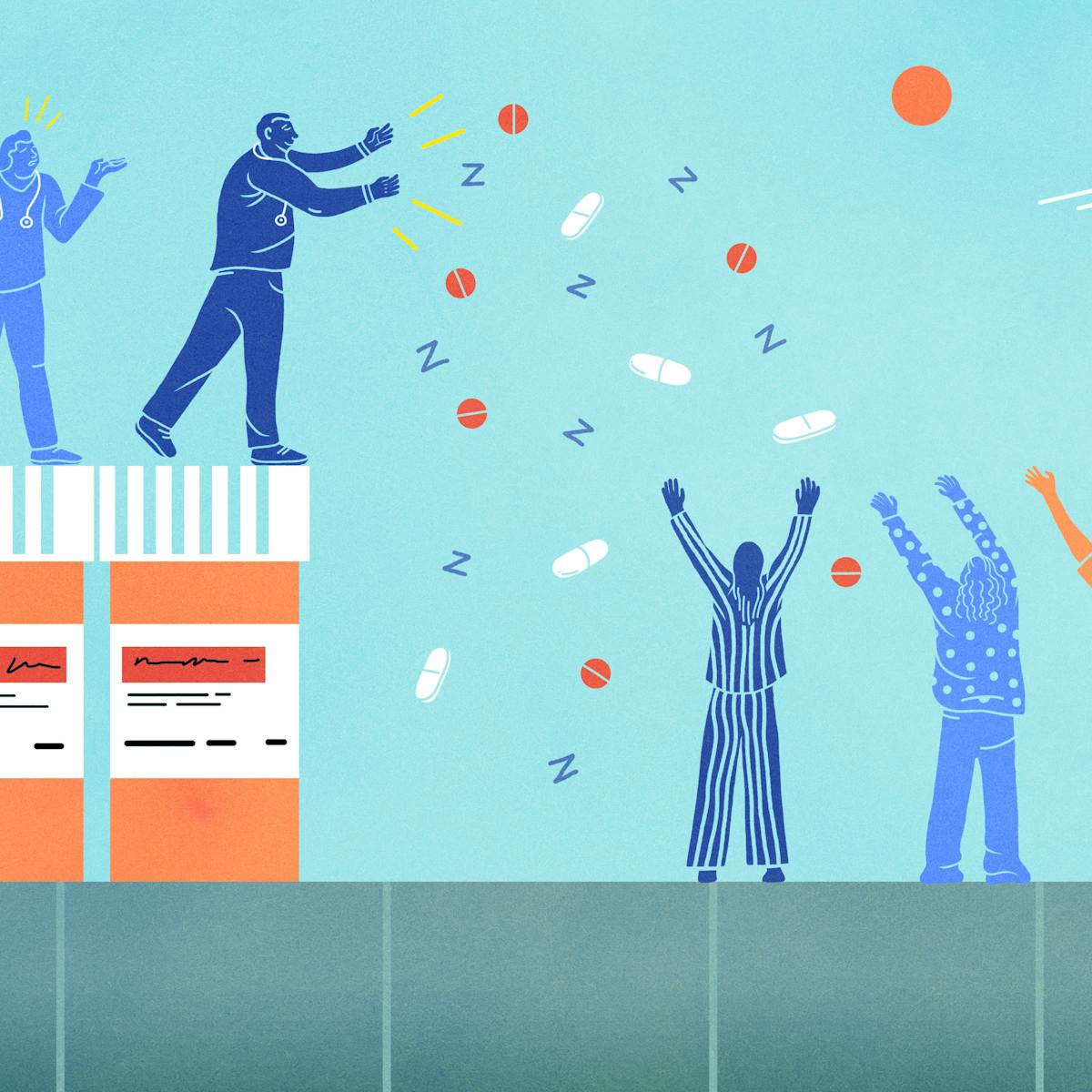Sleeping pills are often regarded as a simple way to help you nod off, or to deal with anxiety when flying or facing stressful situations. However, they have associated risks, and doctors, such as our anonymous GP, are beginning to suggest different strategies rather than prescribing them.
Why I don’t like prescribing sleeping pills
Words by The Secret GPaverage reading time 5 minutes
- Article

One of the things I feel most uncomfortable about in my job is taking the responsibility for prescribing medication that I don’t think is helpful, in which the harms outweigh the benefits. I particularly don’t like prescribing benzodiazepine and Z-drugs – drugs like temazepam, diazepam, and zopiclone. As a practice, we aren’t particularly high prescribers of these drugs, but almost daily I face the dilemma of either issuing a harmful prescription or facing a battle not to prescribe.
There is more and more evidence that these drugs are highly addictive, are associated with dementia and the risk of falls by the elderly, and can cause impaired concentration, so a significant risk if driving. They also have a street value, and we need to be mindful of our prescriptions being sold on for misuse.
Most commonly, people take these drugs as an aid to sleep. They start taking them occasionally and then become more and more reliant on them. Eventually people find they cannot sleep without them. They are also sometimes taken at a time of extreme anxiety or distress – for example in the case of a bereavement – although it can’t take away the pain of a loved one dying, only make you feel zonked out for a few hours. They are also commonly asked for “to help me sleep/relax” on a flight, and as a light sedative to tolerate a medical procedure (often an MRI scan) when patients can feel claustrophobic and anxious.
I was particularly pleased this week as a patient with chronic pain managed to actually stop taking these drugs. She had gradually been increasing her dependence on them – as the only way to help her get some sleep and relief from her pain. I hadn’t met her before, and I expressed my honest concern that they really were not going to help her in the long term and we really needed to get her off them. Amazingly, she listened and has not taken any since! Fantastic! But this is incredibly rare. Most people find it extremely difficult to stop once they begin taking them regularly and may need support from drug addiction teams to help wean them off the drugs.
The perils of using sleeping pills and flying
Almost weekly I have a consultation about using these medications to help with getting sleep on flights, either because the patients are anxious about flying or anxious about adjusting to time zones. Many of my colleagues still give sleeping pills for this reason, but I am resolute. They increase the risk of blood clots (which can be life-threatening!) and also, if there is an emergency on the flight, if you are drugged you cannot respond to it. Paradoxically, they can make you aggressive rather than sleepy, which does not go down well on a flight. They also reduce your drive to breathe and as the oxygen concentration while flying is lower than at ground level this is a bit risky, and not a risk I wish to take with my patients.
There was a case recently where the cabin crew identified that someone had taken a sleeping pill and he was not allowed to fly, so I hope this helps publicise the issue.
A high-level businesswoman asked me recently for something to help her sleep during a flight so she could work on arrival in a far-flung country. She had used them many times before without any adverse consequence and was the sort of person who was used to getting what she asked for, so she was not impressed with my refusal to prescribe.
I like to please people, and if I am not keen on prescribing, it really is because I truly believe it is not the right thing to do
We talked about different strategies – maybe meditation or relaxation, maybe a sedating antihistamine, which she could buy in the pharmacy? Maybe she could get hold of melatonin while she was abroad (for some reason, unclear to many, including me, this is available in pharmacies all over the world, but in the UK we can only prescribe for very precise patient groups). I did manage to stick to my guns and say no and she left.
Several of my immediate colleagues would have given the medication. It would have been a much shorter and simpler consultation if I had. Maybe she will complain. I hope not – I think I was polite and she wasn’t unreasonable, but of course, if you have had a drug for years with no problem and you perceive it to help you, you want to continue to use it.
Saying no to help patients
Assertiveness is a skill that hasn’t come naturally to me. It has been one I have needed to develop over the years. I like to please people, and if I am not keen on prescribing, it really is because I truly believe it is not the right thing to do. I sometimes feel quite stressed by these consultations, often because the patients can be rather cross and displeased. I know my role as the GP is to do the right thing though, not to be liked, but that really takes strength, and some days I don’t have it.
Please understand and don’t get cross with me… I really do have your best interests at heart when I decline your request for sleeping pills.
About the author
The Secret GP
Our anonymous doctor shares what it’s really like behind the scenes in the surgery.
